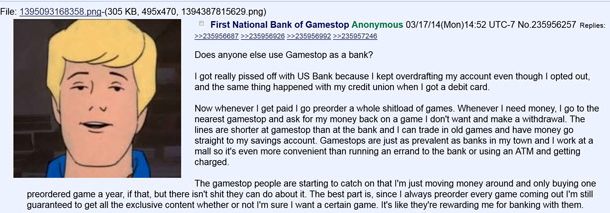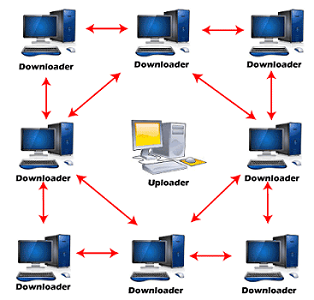Databases and Milkshakes and Invisible Money
What is a database?
What is a database?
Data, and a way to get at it
They can be SIMPLE
Excel?
yeah, can do anything
Real Talk
You are, perhaps, unlikely
to do any database creation
Thanks Linux and Docker!
What does Mysql Workbench DO?
Hey, so, what is money anyway?
Hey, so, what is money anyway?
Work? Value? Trust?
Something like that
A reasonable idea
The cavemen had trouble 'trading' stuff, so they started using shiny rocks.
A reasonable idea
that's mostly wrong.
The cavemen had trouble 'trading' stuff, so they started using shiny rocks.
A bit on banks and money
What is most money "made of?" How is it stored? Coins and little green pieces of paper?
A bit on banks and money
What is most money "made of?" How is it stored? Coins and little green pieces of paper?
NOPE.
Nope. Remember the beginning.
What matters is what's written down.
Power, rules, and lists and IOUS came before "money"
Money comes later.
Political Science and Economics both kinda suck
Political Science and Economics both kinda suck
BECAUSE THEY OFTEN they ignore each other.
Political Science is most useless when
Politics people ignore "It's the economy, stupid."
(IMHO, this is pretty much most times when
everyone's analysis is off)
Economics is useless when
Economists ignore 'Power'
None of your nerd models mean anything when
the power structure is off
Economists ignore power:
Aka, if the other guy has a sharp stick or a big gun,
the terms of the negotations change a lot.
This runs deep:
- Why did Jesus flip the tables?
Again, lists are older than "money" itself.
Not dollars, but a list somewhere that says
"Ug owes Oof two cows"
"Oof owes Grok a stick"
or more accurately..
"Give the King all the Taxes because he's basically a god"
Lists can do all the work.
A quick illustration:
Imagine the "coffee jar" at work that everyone puts into..
..along with a board on the side
(SHARPIE, not DRY ERASE)
Lists can do all the work.
Eventually, the board can do "all the work"
A big immutable list of transactions
This is what the banks do, as well.
They count internal transactions and trade information, even to each otther
"Hey Truist, this is Wells fargo. Bob gave Joe $2
and also the rest of these"
This is what the banks do, as well.
They're really not trying to do this all day
(that is AWFUL trigger discipline, btw)

wat
forgive the language

But, you also might want "pieces/tokens"
GOLD AND DIAMONDS HA HA HA
(wait, seriously. Why are diamonds more expensive than water?)
So then, the internet, money.
Right now, there's always "middlemen"
But with dirty green pieces of paper, there isnt.
Can we do that over the internet?
We need two things, looks like
- A big immutable visible list of transactions (like the coffee list)
Big and immutable?
Interesting
Bittorrent knows how to do this with the Iron Man movie
and no matter what, you don't get My Little Pony instead
The list
?
What else?
- Something shiny and limited (like gold)
- And a way to keep it going because it aint cheap
Aha: Give people gold to keep it running.
Bitcoin and most other "Cryptocurrencies"
(note, some others don't work exactly this way)
A huge encoded/distributed online ledger/list, also called a "blockchain"
Powered/driven by "mining" (which is more like a slot machine, pull the lever, power the thing, and see if you "win")
Mining Bitcoin?
Randomly trying to find "nice looking" hashes.
......4E9BB99 nope.
.......000000 yep! $$$$
Mining
When you download a bitcoin (full node) wallet program, you literally have to get a copy of every single transaction ever.
Transactions are computationally expensive.
The "Mining" also powers the "hashed transactions..eg."
02b23 gave bf239 .005 bitcoins. I can prove it because the hash of this transaction is =>
081ee23
Add this to the chain and spread it around.
Bitcoin transaction.
You "add your new or old hash movement" to the ledger. By making another special hash. Which is "expensive."
This work powers the blockchain and "proves" that you've put in work. By design, the system "rewards" you for it.
Bitcoin transaction.
Now, why is it valuable?
Because people believe it is.
See also: gold, beanie babies, crappy companies, virtual swords, pokemon cards, sneakers, whatevs.
Now, why is it valuable?
Specifically, because you can get people to trade you something for it.
Lets mess up your head more.
How do real banks work?
A reasonable idea
"Fractional Reserve Banking."
You give your money to the bank to hold on to, and then they lend some of it out.
The amount of your money they lend out is the interest rate.
A reasonable, but not quite accurate idea
More like
"Fictional Reserve Banking."
amirite lol
Not quite. FIAT Money.
You invest your money in the bank system, in the reasonable hope, backed by law and guns,
that you can have it back when you ask for it.
Not quite. FIAT Money.
The Federal Reserve, based on looking at stuff (including but not limited to this),
using your money as part of the leverage, DECLARES an interest rate
(i.e. decides how much money to make out of thin air)
It does use "how much money did we all put in the bank"
as PART of the calculation...but
Not quite. FIAT Money.
Different from the first thing because it's not limited to the money you all put in.
I.e. it's not "Scrooge McDuck gold in a vault"
it's "America has guns and we SAY so"
Don't know about y'all
But this kind of made crypto EASIER to understand,
because crypto (and all money type things)
does the same thing.
You can issue all the coins you want,
but they're only worth what other people will trade for them.
HALLOWEEN CANDY
and tunafish sandwiches
and books.
(honestly, Video Games made this click for me)
Bitcoin transaction.
PS: Crypto addresses? Just numbers in different bases (sometimes with a prefix):
ETH: 0x19C653CB3D30EeEe2F99f9f4B987E3b22880FFCF
(100% real, please feel free to send me money :)
Oh hey, wait: is that a Public Key?
YUP
No one much cared about
"Put up your public key
and I can send you an encrypted message
that only you can see."
Oh hey, wait: is that a Public Key?
More specifically, we figured out how
to do this without a lot of "user input,"
and instead through "trust"
Oh hey, wait: Public Keys?
But turns out some people
"Put up your public cryptocurrency address
and I can send you money
that only you can use."
"Blockchain"
It's a large public database, in which everyone can see every transaction. That's all.
Now give me a bunch of money because I just said "blockchain" :)
Hey wait, can we do other stuff?
Yes we know it can do
X gives Y money
but can it just do...anything? Like a computer?
Bitcoin cant, but
Ethereum
Same idea, but instead of just TRANSACTIONS
you can also do ANY COMPUTING TASKS and UPLOAD THEM
(for a cost, of course)
NFTs
"Non Fungible Tokens"
Okay, FUNGIBLE means, they're all equal, like the dollars in your wallet. None is different from the other
NFTs
Basically — a serial number or a url
That is movable, that THEORETICALLY SAYS
"You own this thing."
Defi
More serious.
Why not autonomous code that moves money/tokens
based on rules?
Great idea, stupid name
(smart contracts, sigh)
ALSO, do we need to destroy the environment?
AKA, does EVERYONE need to verify?
And how should we pay people?
Bitcoin = Proof of WORK (proof of wasting electricity)
Instead, just fewer, federated
And you gotta put money up.
Put up 10K, put up your computer
And we'll pay you.
BUT DONT LET IT GO DOWN OR YOU LOSE!
Proof-of-Stake
Proof of Stake, wait
"Put up some money, save don't spend"
And we'll give you more of it.
Cool
And we will give you